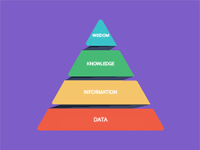Search for...
Bookmarks by Ravi Pratap Singh
Published Bookmarks
 4 GAMIFICATION PITFALLS AND HOW TO AVOID THEM ~ Learnnovators
4 GAMIFICATION PITFALLS AND HOW TO AVOID THEM ~ Learnnovators
Gamification can be interesting to conceive and rewarding to implement, but only if it is done well. What do we mean by that? Let’s have a look…
 3 GOOD AND 3 POOR EXAMPLES OF GAMIFICATION
3 GOOD AND 3 POOR EXAMPLES OF GAMIFICATION
Gamification is a great way to engage and motivate learners, and to fast track the achievement of your goals. In this article, we discuss three good and three poor examples of gamification, along with the reasons for each.
 TOP 6 QUESTIONS TO ASK WHILE DESIGNING MOBILE LEARNING
TOP 6 QUESTIONS TO ASK WHILE DESIGNING MOBILE LEARNING
The last two articles I wrote (Mobile Learning from the Learners’ Perspective and 9 Ways to Support Learners Through Their Mobile Devices) talked about mobile learning from a learner’s point-of-view. In this article, I talk about the design considerations, specifically, the top questions to ask while designing a mobile learning solution.
 9 WAYS TO SUPPORT LEARNERS THROUGH THEIR MOBILE DEVICES
9 WAYS TO SUPPORT LEARNERS THROUGH THEIR MOBILE DEVICES
There are myriad ways to leverage mobile technologies for learning and performance development. Here are a few of them.
 PAINTING BY NUMBERS
PAINTING BY NUMBERS
Science taught me to think about the world in a logical, systematic manner. It’s a way of thinking that is founded on statistics, and I maintain it should inform the activities we undertake in other sectors of society such as Learning & Development.
 5 GAMES EVERY E-LEARNING PROFESSIONAL SHOULD PLAY
5 GAMES EVERY E-LEARNING PROFESSIONAL SHOULD PLAY
You can narrow down someone’s age by whether they include spaces in their file names. If they do, they’re under 40. That is a sweeping declaration, and quite possibly true. Here’s another one… Gamers are a sub-culture dominated by young men.
 MOBILE LEARNING : FROM THE LEARNER'S PERSPECTIVE
MOBILE LEARNING : FROM THE LEARNER'S PERSPECTIVE
Mobile learning might be a great new tool in your organization’s toolkit, but how is it perceived by users? What kinds of content do they access, and how do they learn? Finally, what can we do to bring our solutions closer to these usage patterns?
 SURYA NAMASKAR : AN APP TO STAY FIT & HEALTHY
SURYA NAMASKAR : AN APP TO STAY FIT & HEALTHY
We, at Learnnovators, are delighted to announce the launch of ‘Surya Namaskar’, a free mobile app for Android phones. Surya Namaskar or Sun Salutation, is a yoga cum exercise routine based on a sequence of gracefully linked asanas (postures).
 VIRTUAL DUALITY
VIRTUAL DUALITY
Something struck me during this year’s Virtual Reality Working Out Loud Week. Billed as an event for “anyone who is working with or experimenting with virtual reality, whether that be at home, at school or at work”, this was the second time I had run it. Again I was keen for our peers in L&D and other industries to share what they are doing with this emerging technology.
 FREE E-BOOK: THE ULTIMATE GUIDE TO SUCCESSFUL ELEARNING IMPLEMENTATION AT THE WORKPLACE
FREE E-BOOK: THE ULTIMATE GUIDE TO SUCCESSFUL ELEARNING IMPLEMENTATION AT THE WORKPLACE
In this free eBook, we give you a complete rundown of what it takes to make a success of eLearning implementation at the workplace, right from defining the strategy to evaluating the program.
Submit Bookmark

